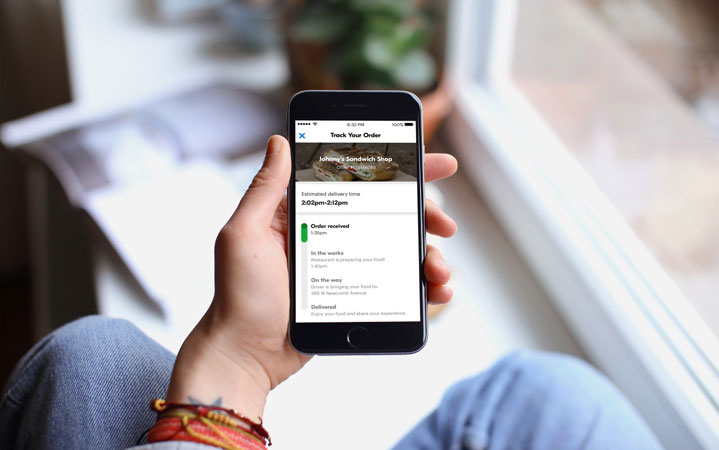In a letter posted on its Learning Center site, Grubhub claims it has been on the receiving end of “misleading stories in the media” regarding driver tips and practices related to its restaurant contracts that have birthed a raft of negative news stories in recent weeks. The Chicago-based delivery provider strongly refuted several of the claims, but also responded with a three-point plan to address concerns about its business practices.
Starting on a defensive foot, Grub says that its namesake brand and Seamless have “helped level the playing field for independent restaurants to compete with larger brands,” and have generated billions of dollars of orders to restaurants of all kinds.
“To date, we have driven billions of dollars in orders to restaurants (including $5B last year alone), helped net more than $2B in tips to drivers and facilitated meaningful connections between the 125,000 restaurants and the 20 million active diners in our platform,” the unsigned note read.(To any TV’s Law & Order junkie, this is the part where the defendant is evoking the pillar-of-the-community defense.) “To be clear: Grubhub/Seamless is committed to transparency and to being the best partner for restaurants. We wouldn’t be here if it weren’t for them.”
Saying its new changes are the result of “engaging with government and restaurant industry trade organizations,” Grubhub said it realizes “a few enhancements to how we work with restaurants would benefit everyone, and help bring clarity to larger issues facing our industry.”
Those changes include extending the look-back period for restaurants to review all phone orders from 60 to 120 days. That includes “redoubling our efforts to continuously improve the process we use with regard to phone orders.” This first step has already been pilloried in the New York Post, with NYC Hospitality Alliance Executive Director Andrew Rigie calling the 120-day policy “absurd.”
The second change is deploying a new website that “makes it even easier for restaurants to request direct control of any URLs registered or microsites created as part of their contractual relationship with Grubhub. This is a direct result of accusations that Grub is “cybersquatting” by creating websites for restaurants, even though such practices were included in the brand’s restaurant contracts.
Its last move involves setting up what it calls a series of restaurant roundtables to “foster more direct dialogue with our restaurant partners.” New York State and NYC will be the primary focus, as NYC’s city council and U.S. Senator Chuck Schumer have previously called out some of the company’s practices related to restaurant clients. Its call to come together also included a swipe at arch rival DoorDash, which has come under fire for practices related to delivery driver tips, which Grub CEO Matt Maloney referenced in its latest earnings call.
“We are pursuing these actions following constructive feedback from restaurants, diners, drivers and elected officials, including Senator Charles Schumer, whose staff helped us come up with this roadmap,” the letter said. “We remain committed to maintaining a beneficial relationship with everyone who uses our service. That’s why, in addition to helping restaurants grow and thrive, we have always championed our drivers—providing them with 100% of their tips—and offered the industry’s most transparent fee structure for diners.”
The gloves are officially off in the delivery market share wars. Responding to accusations is a natural response if one feels improperly accused. On the other hand, there’s also that mantra that staying above the fray is the best response to false claims. Either way, let’s hope none of the flop sweat makes it into our collective pad thai.
Click HERE to read Grubhub’’s full blog post.


